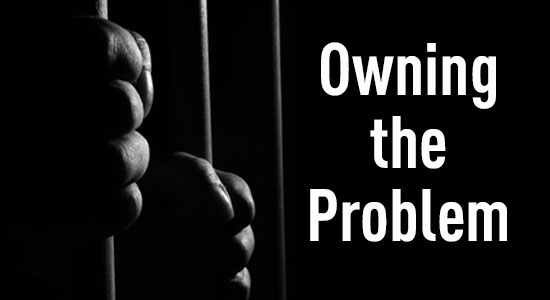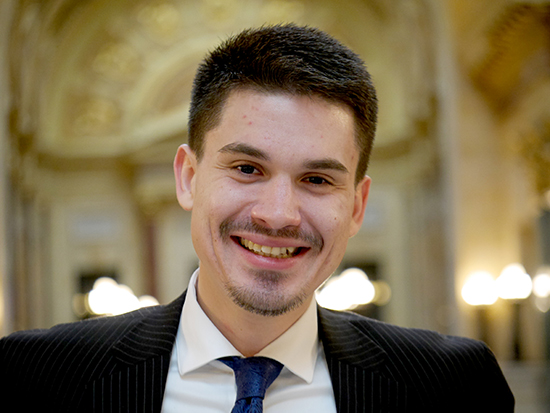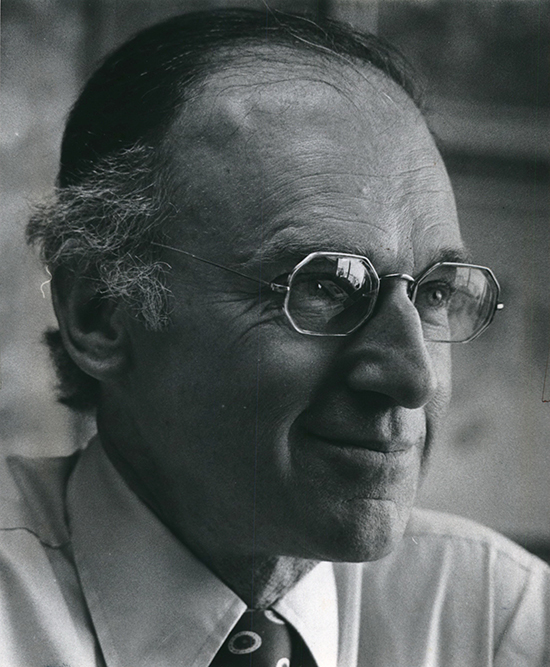Owning the Problem: Mass and Disparate Incarceration

The Wisconsin Lawyer is publishing a series of articles, “Owning the Problem,” by the State Bar’s Mass & Disparate Incarceration Committee as part of the State Bar’s equal justice initiative to bring stakeholders in the criminal justice system together to address mass and disparate incarceration. Part 1 and Part 2 of the series continue to draw reader feedback.
Reader: Having served as a prosecutor for 20 years, I was most interested in “How Did We Get Here? Wisconsin’s Mass & Disparate Incarceration” (Part 1, Wisconsin Lawyer, April 2018). I strongly believe that disparity in the treatment of convicted persons or anyone else needs to be carefully examined and I applaud authors Mary Prosser and Shannon Toole for beginning this process.
I say “beginning” because as published, the article may give the impression of gross discrimination by Wisconsin courts. That impression should not be drawn from the data selected for the article. I believe that judges, prosecutors, and defense attorneys will almost unanimously agree that the two principal issues to be considered in meting out sentences is the nature of the crime and the offender’s prior criminal record. I strongly believe that without comparisons of these principles between the ethnic groups studied, the research is flawed. I admit it would take a great effort to review this data but all of it is a public record and available. I look forward to the remaining articles in the series to see if this flaw is corrected.
Michael L. Zaleski
Quarles & Brady LLP, Madison
We Want to Hear from You! Submit a Letter to the Editor
Wisconsin Lawyer provides a forum for members to express ideas, concerns, and opinions on law-related subjects. Send comments to wislawyer@wisbar.org (include “Letters” in the subject line), or mail to Wisconsin Lawyer “Letters,” P.O. Box 7158, Madison, WI 53707-7158. Limit to 500 words. Writing guidelines available.
Connect With Us Online. Post comments to articles
online, and find us on
Facebook, Twitter, and LinkedIn.
Reader: Attorney Michael O’Hear’s article, “Mass Incarceration: Fiscal & Social Costs” (Part 2, Wisconsin Lawyer, June 2018), was carefully documented and excellent. O’Hear described the extraordinary financial and social cost of Wisconsin’s system. Among other issues, O’Hear discussed the problem created by easy revocation. In addition, O’Hear pointed out that there is a reasonable inference that a racially biased “criminal justice system” may contribute to creating violent crime rather than preventing it.
Wisconsin’s revocation system contributes to Wisconsin’s expensive overincarceration. Revocation is decided by a hearing examiner rather than a circuit court judge. Although not unique in Wisconsin, we are in the minority. Crimeless revocation in Wisconsin is common. Revocation based on rule violation is the norm. Hearing examiners do not exercise discretion when deciding revocation. Among other things, hearing examiners do not consider mitigating circumstances, a probationer’s importance to their family, a probationer’s low risk of crime, a nonviolent history, or the relative petty nature of a rule violation. If the boxes are checked, a hearing examiner revokes. A goal should be to eliminate hearing examiners for revocation. Until that happens or we eliminate crimeless revocation, revocations should be watched.
It is reasonable to assume that if Wisconsin reduces its prison population to the level of Minnesota’s, thousands of government jobs will be lost. Since legislative improvements will affect a significant number of voters’ income, legislative change will be difficult and slow.
Wisconsin has had national recognition for its racially biased prison system. Our failure to create equal justice under the law mandates the State Bar of Wisconsin to act. Here are suggestions.
1) The State Bar should adamantly oppose a pay raise for everyone including the police, district attorneys, and judges until there is significant improvement in our bigoted, bloated, and expensive criminal justice system. This is a national disgrace. Those who work in this system should be under pressure to improve.
2) The State Bar should monitor sentencing in Wisconsin. Twenty years ago, it was discovered that sentencing in Wisconsin was racially biased. Instead of continuing this study, it was stopped. Nothing was done. The same study was conducted by a Wisconsin university in 2014 with the same results. If the State Bar had continued monitoring sentencing, we would not be in the position we are now in. Letters of information should be sent to counties that are contributing to the racially biased bloat.
3) Contested revocation hearings in Wisconsin should also be monitored independently by the State Bar. My suspicion is that an independent study will show how easy and how petty the rule violations are that lead to revocation.
We can’t assume that this system will heal itself. By monitoring sentencing and revocation, the State Bar will be acting responsibly. The State Bar should have learned a lesson from our history. Our criminal justice system will continue as is unless those working in the system know that this time the State Bar will continue watching and demanding improvement.
I am in favor of changes in legislation and experiments, but this time those working in the system should be aware the State Bar will not forget and move on.
Nancy Barasch
Kenosha
Changes to Rules of Civil Procedure

In “Sweeping Changes to Rules of Civil Procedure” (Wisconsin Lawyer, June 2018), authors Ryan Billings, Robert Gegios, and Melinda Bialzik wrote, “With the chief stated aim of making litigation in Wisconsin courts less expensive, in 2018 the Wisconsin Legislature established new rules that dramatically alter Wisconsin civil procedure. The rules, enacted in 2017 Wis. Act 235, will undoubtedly affect the balance between the pursuit of a case’s merits in discovery and the expense of that pursuit.”
The authors believe that Act 235, passed late in the Legislature’s 2017-18 session, is notable not only for its amendments to the rules governing civil litigation practice but also for its divergence from the usual process for enacting such changes.
A reader posted a comment.
Reader: To the authors, thank you for a very nice job of reviewing these new changes. However, regarding the class action provisions, I would ask if you believe they substantially mirror the “Class Actions Improvements Act” authored by ALEC [the American Legislative Exchange Council]?
It is more than disappointing to see the Republicans ignore [standard operating procedure] and jam legislation down our throats without the input of those with expertise and firsthand knowledge of these rather complex subjects. This conduct could also be seen in multiple attempts by the Republicans to circumvent the work and duties of several “Advisory Councils” that function by creating “Agreed Bills” that had the full support of both sides of the aisle – the competing parties.
Aren’t we entitled to something better than what we have been getting from our current government?
John Edmondson
Edmondson Law Office, Appleton
Language Barriers Can Compound Access to Legal Help

Puerto Rico native Jair Alvarez represents the Wisconsin Hispanic Lawyers Association on the State Bar of Wisconsin Board of Governors. He champions diversity in the legal profession with the goal of finding solutions to the issues minority communities face in society and, in particular, the justice system. In a 10 Questions column, “Jair Alvarez: Changing Cultures and Conversations” (Wisconsin Lawyer, May 2018), he spoke about his experiences as a Hispanic lawyer.
Reader: Thank you for the profile of Jair Alvarez. Attorney Alvarez correctly points out that law firms must look at their hiring practices. Nonprofit law firms must also examine their practices to ensure high-quality representation and provide the best services to our clients. The unmet legal needs of low-income families are often compounded by language barriers. The article reminded me of the importance of strong relationships with Wisconsin’s specialty bar associations and their lawyers. I look forward to seeing Attorney Alvarez in a future article highlighting lawyers making a difference in public office.
Susan Conwell
Kids Matter Inc., Milwaukee
Irv Charne Epitomized High Ethical Standards and Integrity

From school desegregation and civil rights cases to Indian treaty rights to environmental protection matters, Irv Charne’s professional success reflected a passion for zealous representation coupled with unwavering civility. In “Irvin B. Charne: Living Up to His Light” (Wisconsin Lawyer, March 2018), Art Harrington and Howard Pollack memorialized their mentor, role model, and friend.
Irv’s son, Jim, wrote a note of thanks.
Reader: I want to thank Wisconsin Lawyer for its coverage of my father and his career since his death on January 10.
The letter that appeared in the May 2018 issue, from Attorney John Skilton, references my father’s longtime friendship with Tom Fairchild.
Mr. Fairchild was my father’s first law partner, in the firm Fairchild, Charne & Kops. My father entered private practice when his appointment as law clerk to U.S. District Judge Robert E. Tehan came to an end. The firm had offices at 135 W. Wells Street in downtown Milwaukee.
My father was always very appreciative of the opportunity Judge Tehan gave him. And Mr. Fairchild certainly went on to have a very distinguished career.
Jim Charne
Law Offices of James I. Charne, Madison
On Rescinding an Award
In April, Attorney General Brad Schimel called on the State Bar to rescind its WisLAP volunteer of the year award to an attorney who was previously convicted in a case that involved alleged sexual assault. The State Bar later rescinded the award and has received numerous communications in response, both supporting and criticizing that decision.
Dear Editor: Stephan Addison wasn’t getting a lifetime achievement award, he was getting an award for much of the good he had done since a criminal conviction in 2005. The Wisconsin legal profession thought it was so serious he got a 60-day suspension – 13 years ago. This year he was awarded the Jack DeWitt WisLAP Volunteer Award for all the good he has done recently to help troubled lawyers. A much higher standard of ethical and professional conduct must be demonstrated to become a member of the State Bar than to get an award from WisLAP.
The Wisconsin legal profession and the members of the Wisconsin bar who complained and the members of the WisLAP Committee who voted to rescind his award should be embarrassed for allowing pressure from Attorney General Brad Schimel and other members of the Wisconsin bar who have nothing to do with WisLAP to cause them to vote to rescind the award. It was inappropriate for the members of the WisLAP Committee who voted to rescind the award to back down in the face of meaningless pressure and criticism from Brad Schimel and other members of the legal profession. In the interest of full disclosure, I advised Attorney General Schimel in a phone conversation that although I am one of his supporters I would publicly criticize his position.
Some members of the committee felt threatened that the State Bar would stop funding this important program. Really? Rescinding this award will discourage others from joining the program as volunteers and lawyers who need help from getting help. Does the Wisconsin bar really want to discourage this important program?
As a member of the Illinois and Chicago Bar Associations, I receive the CBA Record, a publication of the Chicago Bar Association. The February/March 2018 issue contained an article entitled “Cultivating Wellness in the Legal Profession” and talked about why it’s important for lawyers to become involved in the Illinois Lawyers Assistance Program. The article provided statistics showing that lawyers outpace the general population in stress, anxiety, depression, and alcoholism.
Imagine the outcry if someone worked a 40-hour week and received his paycheck on Friday only to be told on Monday that, because he was in legal trouble 13 years ago, we’re going to take away the paycheck you earned last week. I hope no more than a handful of lawyers are either deterred from volunteering to help WisLAP or take advantage of the program because of this inappropriate criticism.
Michael F. Hupy
Hupy and Abraham S.C., Milwaukee
